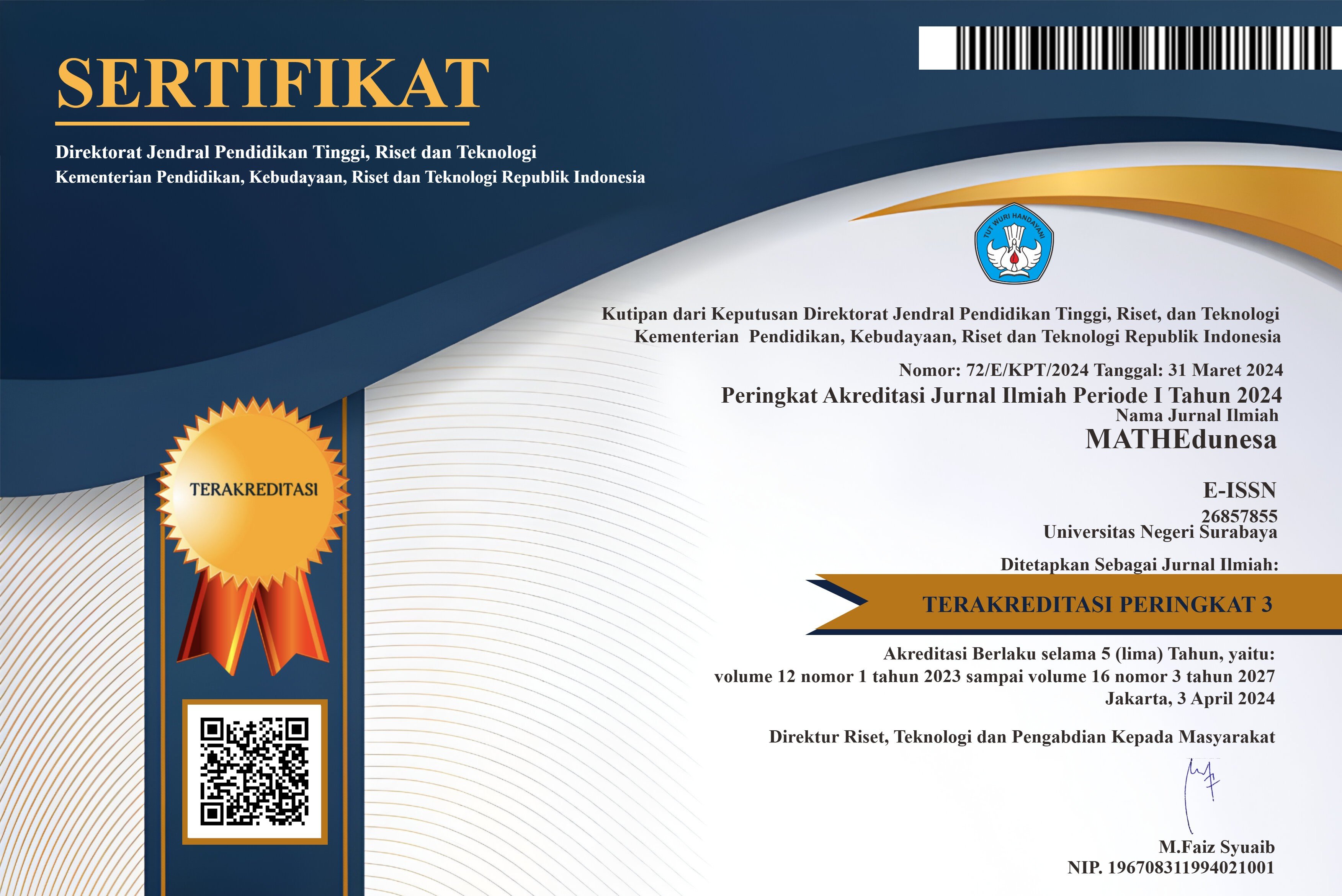Students' Mathematical Modeling Ability in Solving Data and Uncertainty Questions on Asesmen Kompetensi Minimum
DOI:
https://doi.org/10.26740/mathedunesa.v13n1.p119-131Abstract
Every aspect of daily life is inseparable from the relationship with mathematics and the application of mathematical concepts. Because of this connection with mathematics through mathematical models, mathematical modeling can help students to see the connection between mathematics and real world. In the context-based Asesmen Kompetensi Minimum (AKM) questions, students are asked to solve mathematical problems related to real world. This study aims to determine the mathematical modeling ability of grade VIII junior high school students in solving AKM problems. This type of research is descriptive research with a qualitative approach. The data described is the mathematical modeling ability of students in solving AKM. The subjects of this study were twenty-six junior high school students in grade VIII. Students were given a test sheet containing AKM question in the numeracy section that had been adapted to the data and uncertainty content domain. The results showed that in the data and uncertainty content domain, students' mathematical modeling abilities were quite diverse. Some students were able to reach the exposing phase and answer questions correctly. Most students are still unable to interpret and validate the answers obtained from working mathematically to be referred to the situation of daily life problems in the given problem.
Downloads
Downloads
Published
Issue
Section
 Abstract views: 106
,
Abstract views: 106
, PDF Downloads: 113
PDF Downloads: 113




